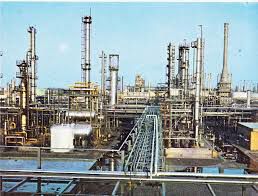IRAN, AND THE ROOT OF THE ANGLO-IRANIAN OIL COMPANY’S DISPUTE. CHALLENGING THE UNITED KINGDOM’S WORLD AUTHORITY. A TURNING POINT. 1945-1951
. The Conservatives had very little disagreement with the strategies of their predecessors, as the agreement signed in Colombo in 1950 had been known as the Development Act of 1940 formulated by themselves, implying that ‘Britain was in Africa and Asia for the Africans’ and Asians’ good and that her aim was to “develop” them to a stage where they could fend for themselves.’¹ The policy of giving aid to the developing countries would also cancel the admission of the error of past imperial policy.
Among both the imperialists and the anti- imperialists the colonial development policy was uncontroversial, as it contained assistance to the developing countries and at the same time the economic interests of Britain were defended. The harmonisation of Labour’s socialist, anti-colonial doctrine with its underlying British nationalism and sense of Empire, the bi-partisan policy between the Conservatives and the Labour Party, and the determination to maintain Britain’s world role was positively Churchillian.
The Labour Government of 1945-51, had nationalised more industries than any previous administration in the United Kingdom’s history, such as the whole of the coal mining industry, which, similar to Iranian oil, was then the country’s main source of energy; but, the Labour Government’s Foreign Secretary, Ernest Bevin, believed as a socialist that British companies in the Middle East should be responsible for the economic and social welfare of the natives.
One difficulty, which the AIOC explained to the Iranians, was that the Venezuelan concession was a subsidiary company set up to work that particular concession, whereas AIOC was a world-wide company with no separate subsidiary for its Iranian operations. It was, the negotiators pointed out, illogical that the Company should pay to Iran 50% of its profits earned, for instance, from Kuwaiti oil, and certain that the ruler of Kuwait would have the greatest objection to such an agreement.
The other complaint was over the gold price used to calculate AIOC’s tonnage royalties. This was stipulated in the 1933 Agreement to be the official price of gold, which post-war meant the price used by the IMF, but the market value of gold was much higher in the bazaars of Teheran than in New York or London. Altogether the Iranians felt they were being cheated, both over their royalty income and over their dividend-related receipts.
‘The Anglo-Iranian Oil Company should advance to the Persian Government £10 million on the account of future oil royalties,’ requested the Iranian Government. ²In 1948 the British Government, ‘received in profits and taxation twice the amount which had accrued to the Persian Government.’ ³Despite all these problems, the AIOC did eventually negotiate a package of offers:
-
-
-
-
-
- Ibid.
- PRO, London, FO 371/68731, General Political Correspondence of the Foreign Office, Economic Relations Department of the Foreign Office on the royalties paid by AIOC to the Persian Government, 20th September 1948.
- PRO, London, FO 371/754955, General Political Correspondence of the Foreign Office, AIOC negotiations with the Persian Government, 9th February 1949.
-
-
-
-



